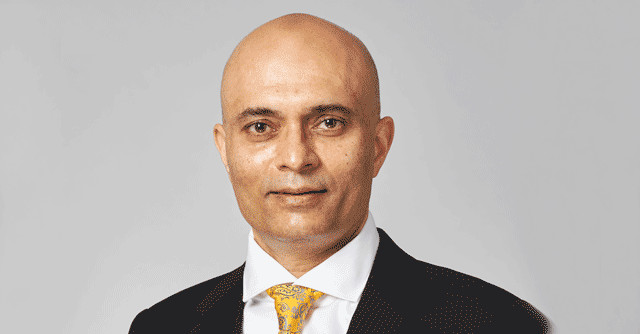
‘We want to bring HPC to the masses’: Vivek Mahajan, CTO, Fujitsu


Japanese IT services firm, Fujitsu, is credited for developing the most powerful supercomputer in the world, called Fugaku. Earlier this month, the company started providing high performance computing (HPC) as a service, which will allow firms to take advantage of the 442 petaflops of computing power that Fugaku provides. In an interview, the company’s chief technology officer (CTO), Vivek Mahajan, said that HPC as a service has a big future in India, as do even more powerful future technologies like quantum computing. Edited excerpts:
What is the state of advanced computing in India today?
There’s a lot of need for computing in India, but we believe that in future HPCs are what every end user, like you or me, will be using. They have that need today, but they can’t use it because you or I, nor many companies, can buy a supercomputer. The way we see that happening is by computing as a service.

I think that when this happens computing will become more pervasive. HPC will be offered through the cloud, and you as a user should only have to care about what your problem is, not whether it needs quantum or non-quantum etc.
Do you already see Indian businesses turning to HPCs as a service? What will it be used for?
Well, it’s (Fugaku) not available in India right now. But I see a lot of usage for this. For instance, if you want to put your money in retail, stocks etc. and you want to model that to find the best value. It’s a very simple problem, and you can decide to run two cycles (supercomputers are priced based on time spent to run a simulation on them) supercomputer as an end consumer. We simulated covid on Fugaku to calculate the right angle for wearing a mask to minimise the impact of a virus and the distance people should be at from each other.

We have also used it for tsunami predictions, which saves lives. We can do the same in India for cyclones or floods. In addition, traffic, logistics etc. are real problems today. I think these are very common problems that are very solvable with the power that HPC brings. If we’re offering it at a price point that makes it attractive.
But there are companies in India dealing with such problems without HPCs, why would we need HPCs?
I wouldn’t say that they’re solving it (in the best manner). How difficult is it to solve the covid problem? I don’t think that modelling is easy to do on normal computing platforms. They’re probably using on-premise HPCs for weather forecasting, but (with HPC as a service) each state can do their own flood predictions etc and they don’t need to have an HPC. So, people probably do it but doing it in real-time is very important, and it’s missing.

For example, in Kawasaki City (in Japan) we’re modelling something where you can reroute traffic based on real-time traffic data. I don’t believe such solutions are out there today, because normal computers can’t do it. Quantum can, and quantum isn’t available today.
India has been developing its own HPCs and quantum simulators. What is the value of having a country’s own infra if such services are available over the cloud?
I think it comes down to data privacy issues. If a country says it doesn’t really care about where data is being sent to, then it really doesn’t need to build this infrastructure.

India has made it pretty clear that certain information will need to remain in the country. How do you solve bottlenecks like that?
For major countries like India, Japan, China etc. it makes sense to have all the data consolidated (in one place). For instance, if there’s interest in the Fujitsu service then we put one large data center in India, so that the data sits inside the country, and the service is available to everyone who wants to use it. That’s the answer in the short term.
The core technology doesn’t have to be built again. Fugaku is a cluster of machines called FX1000 (servers), which are clustered together (along with other technologies) to form the HPC. So, if you want to build something, you could bring FX1000 machines here.

Have you already approached customers in India for HPC as a service?
Not yet. We announced compute-as-a-service just two weeks ago. Look, you can buy cloud services from AWS, Google etc. and you might even be able to buy some cycles over there. But what we want to do is (bring) HPC for the masses. The first place it will go out to is Japan, and then we will roll it out (to others), which is a financial and not a technical problem.
The vision is not just HPC, it’s HPC-quantum. Quantum as a service is available, but quantum really isn’t available right now. Digital annealing (a digital technology solution built on the principles of quantum computing, like superposition etc) is available in real-time, and then quantum simulators. We see that as one compute set, which people should be able to use at one price point.

